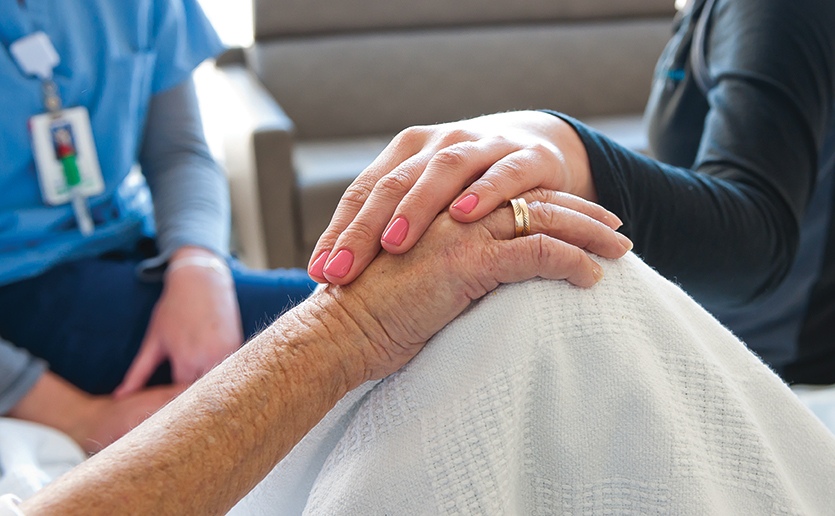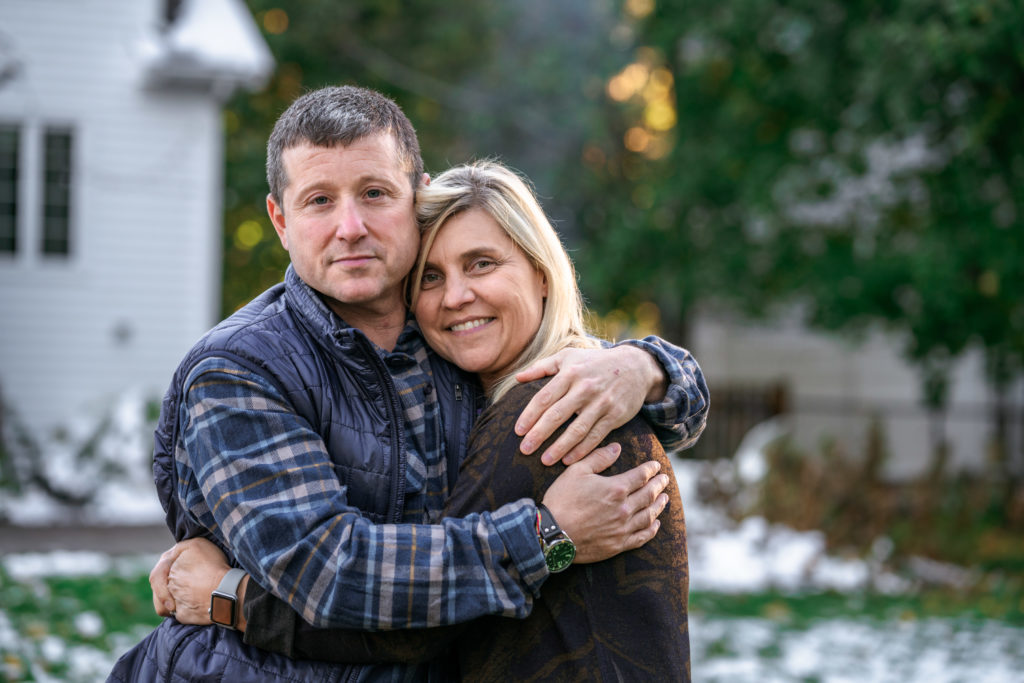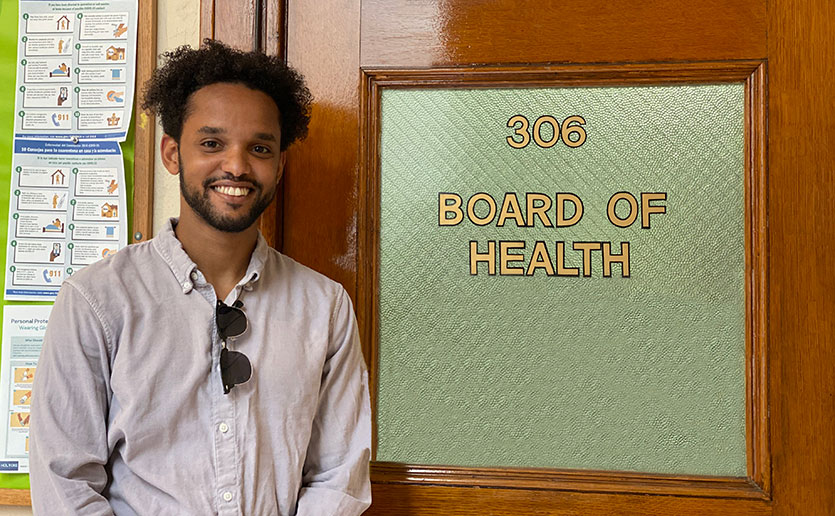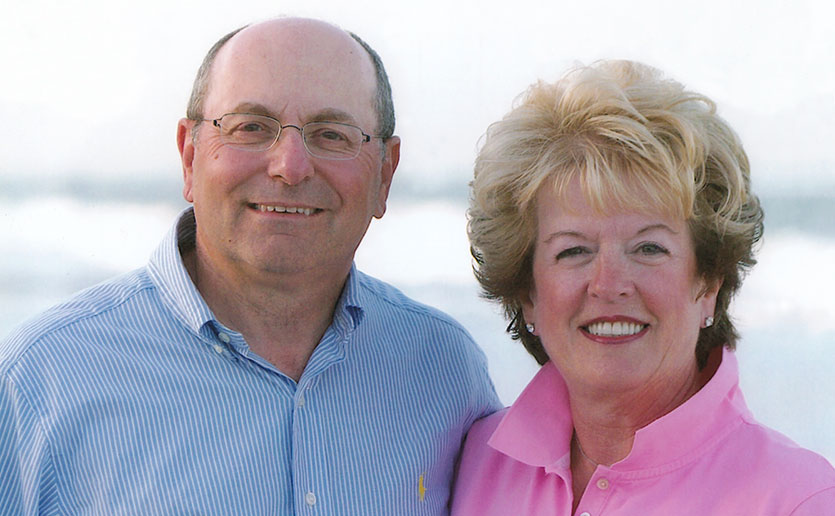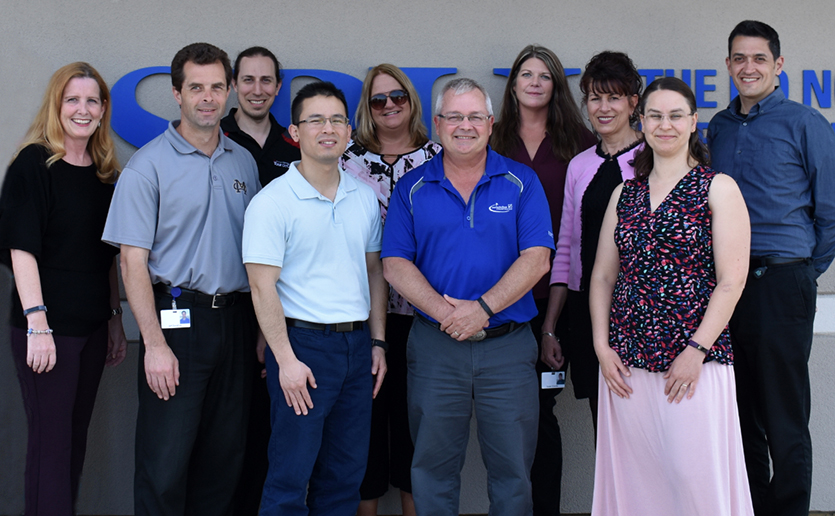Key Takeaways
The coronavirus has taken an immense toll on Americans, particularly those living or working in nursing homes and other long-term care facilities. The Centers for Disease Control and Prevention reports that as of August, at least 45,000 residents at these facilities had died of COVID-19 — accounting for 25% of U.S. deaths attributed to the disease. Since the early days of the outbreak, members of the Massachusetts General Hospital Division of Palliative Care and Geriatric Medicine have been on the front lines of the response.
Fear of contracting COVID-19 has led many older adults to refuse visits from home health care providers or avoid seeking care in the hospital or emergency department.
“COVID has changed how we’re going to do business forever,” says Geriatric Medicine Section Head Sharon Levine, MD, who adds, “I think we have a responsibility to raise the bar for the care of older adults.”
While great progress has been made in Massachusetts since the initial surge, Dr. Levine and others are calling on the lessons they have learned from the past few months to improve patient care and prevent future devastation in nursing homes and other long-term care facilities.
Complicating Geriatric Care
The unprecedented nature of COVID-19 has exacerbated the array of challenges that come with geriatric care while also creating some new ones. For instance, advanced age and the presence of multiple chronic conditions are known to increase the risk of poor outcomes in patients infected with COVID-19. But other factors can also increase risk for older adults, explains Christine Ritchie, MD, director of research, Division of Palliative Care and Geriatric Medicine, and the Kenneth L. Minaker, MD, Chair in Geriatric Medicine.

Fear of contracting COVID-19 has led many older adults to refuse visits from home health care providers or avoid seeking care in the hospital or emergency department. Social isolation is also a problem. COVID-19-related restrictions have prevented many older people from seeing friends and family. In long-term care facilities, limited staffing levels mean that staff are often unable to provide the necessary levels of emotional, social or even physical and nutritional support.
COVID-19 has also highlighted the struggles of many care providers to address the needs of older patients with varied chronic conditions. “For example,” Dr. Ritchie says, “the behavioral symptoms of dementia must be managed with not only medical interventions but also environmental, human and social ones. These higher-touch approaches are often more effective, though harder to accomplish, in the context of COVID-19.”
Adjusting in the Clinic
Soon after the pandemic hit Massachusetts, two physicians from Geriatric Medicine were reassigned to and integrated into the Palliative Care team to provide care consults for COVID-19 patients. A pair of fellows, meanwhile, were dispatched to conduct needs assessments for COVID-19 patients at Mass General and later in area nursing homes.

In order to keep in touch with patients and families, Dr. Levine’s team stepped up their communication efforts. In addition to increasing the number and availability of video visits, staff called each of the clinic’s 1,200 patients to confirm they were receiving the care they needed. The clinic also held several virtual “town halls,” featuring everything from Q&As with doctors and a cooking class to a performance by renowned cellist Yo-Yo Ma and an appearance by Boston Mayor Marty Walsh.
Reevaluating Care Strategies
Throughout the pandemic, Dr. Ritchie has worked with geriatricians and infectious disease and infection control specialists to help interpret evolving guidelines and enhance resident and staff safety in the home and in long-term care facilities. She is also advocating for a more thoughtful approach to the provision of personal protective equipment, to ensure home-based clinical care programs and long-term care facilities have sufficient supplies.
“Our investment in the home and in longterm care facilities is an investment in the older residents who are there and in the staff caring for them, who are often from underrepresented minority populations that have been disproportionately affected (by COVID-19) due to various disparities,” Dr. Ritchie says.
Our investment in the home and in longterm care facilities is an investment in the older residents who are there and in the staff caring for them.
Optimizing quality of life for patients with chronic serious illness is at the heart of Dr. Ritchie’s work. She has begun several new research initiatives related to COVID-19, including one exploring how best to support seriously ill homebound or disadvantaged populations who can’t always get into the clinic. Another project focuses on identifying factors that have enhanced or diminished the well-being of people living with dementia and their caregivers. A third initiative involves partnering with hospices, home health agencies and home-based primary and palliative care programs to make COVID-19 testing and eventual vaccine delivery more equitable and sustainable.
Preparing for a Second Wave
Most in the medical and scientific communities believe that whether it occurs in the fall or deep into the winter, the next surge of COVID-19 in Massachusetts appears inevitable. In the meantime, Dr. Levine, Dr. Ritchie and their colleagues in the Division of Palliative Care and Geriatric Medicine will be doing all they can to make sure they are ready.
“I think the one thing we’ve learned from this is it won’t be as scary next time because we know what we have to do and how to do it,” Dr. Levine says. “Even though we don’t have a cure or a vaccine yet, it’s not going to be the first time. It’ll never be the first time again.”
To make a donation to support the Division of Palliative Care and Geriatric Medicine, please contact us.
